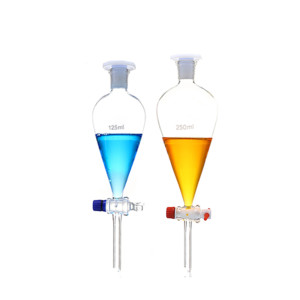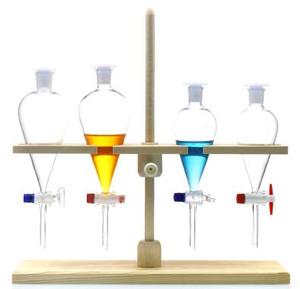
All categories
Featured selections
Trade Assurance
Buyer Central
Help Center
Get the app
Become a supplier

(976 products available)




















































Lead funnels, formally known as lead funnels, come in diverse types. Nevertheless, they are all meant to facilitate the conversion of potential clients into actual clients. Here is a rundown of the various types available:
The Traditional Lead funnel is an illustration of the sales cycle. This funnel has a set of stages, which are Awareness, Interest, Decision, and Action. At the top stage, potential clients land on the product or service for the first time. Here, they consume content or are invited to participate in a webinar. As the stages progress, the leads get nurtured to make a purchase. Marketers use email, social media, and other digital content to provide value and stay in touch with potential clients.
This funnel works optimally for software services. It enables visitors to sign up for a free trial of the offered software. This software allows for the collection of valuable user data. The free trial funnel allows the prospective customer to test the software before making a decision to buy it. This funnel delineates the user experience from initial discovery to trial usage. Then, it leads to conversion through in-app prompts and follow-up emails about the trial of the app.
The High Ticket Lead funnel is deployed to sell premium-priced products or services. Since the price is relatively high, the funnel is designed to progressively build trust with the client. It does this by offering free resources like eBooks, webinars, or consults. These valuable materials are intended to capture leads. The High ticket funnel also incorporates personalized strategies, such as direct consults, to close sales while handling leads with care.
A Webinar funnel is another effective lead funnel whereby the target audience is driven to attend a value-filled live or recorded webinar. This on-demand funnel helps position a brand as a thought leader and provides in-depth knowledge of a service or product. It also warm-ups leads by providing greater value before any sales pitch. Leads are usually invited through engaging email series and are well segmented based on their interests.
The Survey funnel is unique since it utilizes interactive surveys as a means of lead generation. These surveys are positioned on the landing pages. They are aimed at capturing user information and addressing user pain points. Survey funnels provide personalized content or product recommendations in real time. That enhances user experience while also nurturing leads. The data collected is invaluable to marketers. It assists them in tailoring their future campaigns based on customer needs and preferences.
Lead funnels have a rich application across numerous industrial applications beyond marketing:
In the healthcare industry, lead funnels are used to drive enrollment for health plans and services. They guide members through the complexities of available health programs. They also create awareness about preventive services and treatment programs. Personalization of content in healthcare lead funnels plays a critical role in addressing individual health needs and fostering community engagement.
Real estate professionals use lead funnels to attract potential property buyers or renters. They direct prospects through various available properties that suit their needs and budgets. Lead funnels in real estate also nurture leads by providing valuable market insights. This resource positions agents as knowledgeable guides in their industry.
Educational institutes use lead funnels to recruit students for their programs. They provide prospects with valuable information about the programs, financial aid, and career opportunities. This information delineates the program benefits and nurtures prospective student interest by addressing their academic and professional goals. When educational lead funnels are personalized, they are able to resonate with different students and their unique journeys.
The travel industry does extensive use of lead funnels to promote vacation packages, experiences, and deals. They create appealing content that showcases travel destinations and adventures to attract prospects. Lead funnels guide potential travelers through their decision processes by delivering tailored offers that suit their preferences and budgets.
In the B2B services sector, lead funnels are used to capture inquiries for consulting programs, software solutions, and other professional services. They delineate value propositions through case studies and expertise insights. Also, they nurture business leads by addressing pain points and showcasing how services can aid in resolving challenges. In this space, funnels out-dashboard conversion funnels, which include high-touch engagement methods such as demo invitations for enterprise clients.
Key features that make lead funnels effective discovery and nurturing tools for prospective clients include:
Effective Lead funnels can be integrated across various marketing channels. These marketing channels include social media, email, and paid ads. This is a critical application when generating leads. Such integration enables marketers to catch prospects where they are most active. It also ensures a seamless transition between the stages of the funnel.
Lead funnels are characterized by exclusive landing pages customized for specific campaigns. These pages are optimized for conversion. They contain persuasive calls to actions, minimal distractions, and aligned content. The purpose of the landing pages is to the user intent and drive lead capture. This is by providing valuable content like eBooks or webinars in exchange for user information.
Lead segmentation and scoring can be defined as the capacity to classify leads based on their behavior and demographic characteristics. It is a feature of lead funnels that prioritizes leads. This feature enables marketers to concentrate their efforts on the most promising prospects. Lead scoring is based on the defined actions taken by leads. For instance, prior to engaging with a salesperson, scoring segments leads that exhibit high interest and engagement levels.
Automated nurturing sequences are essential features of a lead funnel. They are intended to guide leads through the funnel via email marketing. Personalized follow-up emails containing valuable content are sent out. This is informed by the lead's position in the funnel. These automated sequences maintain engagement with prospects and keep brands top of mind while steadily moving leads toward conversion.
For optimal performance measurement, lead funnels have inbuilt analytics and reporting features. Marketers can track key metrics, such as conversion rates, lead sources, and funnel drop-off points. They provide insights into campaign effectiveness and areas that need improvement. These data-driven analyses allow for real-time adjustments. This ensures the marketing strategies are aligned with the set business objectives.
There are no universal technical specifications for lead funnels. This is because they are customized to cater to distinct business needs. Nevertheless, here are some of the typical technical components that create a lead funnel:
Lead funnels usually integrate with customer relationship management software systems. This integration enables efficient lead management and tracking. User interactions can be captured, nurtured, and analyzed throughout the funnel. All this information is pertinent to informed decision-making.
Lead funnels use email marketing tools for automated nurturing sequences. These tools enable personalized email sends to lead batches based on their segmentation.
Form builders are integral to lead funnels as they create lead capture forms. These forms are embedded on landing pages. They enable the easy collection of user information.
Marketers customize lead funnel landing pages through page builders to ensure they are aligned with campaign goals. These pages are optimized for conversions and provide users with an engaging experience.
To choose a suitable lead funnel system, there are several key considerations that one has to pay attention to. These factors impact the effectiveness of the funnel in capturing and converting leads:
The selected lead funnel should be tailored to the distinct requirements of the given business model. If an enterprise offers low-cost, high-volume products, it requires a streamlined funnel. This funnel should appeal to a broader audience. However, high-ticket businesses usually need personalized funnels. They build trust and provide extensive value to potential clients before any purchase.
Understanding the lead funnel's target audience is paramount. It ascertains that it resonates with and effectively engages the prospects. The funnel should be customized to cater to the audience's unique needs, interests, and pain points. This creates a meaningful and appealing experience for the users. Doing so increases their likelihood of conversion.
The effectiveness of a lead funnel highly depends on the value it provides to its leads. The content should be strategically positioned throughout the funnel to educate, engage, and nurture leads. This builds brand trust and authority.
In this digital era, potential clients are often found across a myriad of channels. Therefore, the lead funnel should be equipped to capture and engage leads through multiple touchpoints. It should create a seamless and cohesive experience for the users. This enriches user interaction with the brand.
A successful lead funnel implementation requires continuous monitoring and analysis. It is important to track key performance indicators, such as conversion rates and lead sources. Doing so can highlight areas that need improvement. This enables data-driven decision-making to enhance the funnel's effectiveness over time. Also, early implementation of optimization strategies ensures the funnel performs at its peak capacity.
A. A lead funnel is a marketing model created to illustrate the journey taken by a potential client, who becomes an actual client. It is a step-by-step process of how a prospect first finds out about a product or service to when they finally buy it. The stages usually include Awareness, Interest, Decision, and Action. Marketers use multi-channel marketing campaigns to provide value and stay in touch with potential clients.
A. The primary purpose of a lead funnel is to generate and nurture leads, guiding them through their decision-making process. It does this by providing tailored content and experiences that address their needs and interests.
A. A lead is a user who has shown interest in a given product or service and has provided their contact information. On the other hand, a lead funnel is the roadmap marketers use to nurture leads and convert them into clients.
A. Several key factors have to be considered when choosing a suitable lead funnel. They include the business model, target audience, content strategy, multi-channel approach, and the funnel's analytics and optimization capabilities.